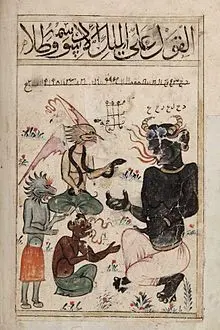 In Arabic, a genie (also jinn, Djinn, from Arabic جني jinnī) is a supernatural creature which occupies a parallel world to that of mankind, and together with humans and angels makes up the three sentient creations of God (Allah). Possessing free will, a djinn can be either good or evil.
In Arabic, a genie (also jinn, Djinn, from Arabic جني jinnī) is a supernatural creature which occupies a parallel world to that of mankind, and together with humans and angels makes up the three sentient creations of God (Allah). Possessing free will, a djinn can be either good or evil.
The Djinn are mentioned frequently in the Qur’an, and there is a Surah entitled Al-Jinn. While Christian tradition suggests that Lucifer was an angel that rebelled against God’s orders, Islam maintains that Iblis was a Djinn who had been granted special privilege to live amongst angels prior to his rebellion. Although some scholars have ruled that it is apostasy to disbelieve in one of God’s creations, the belief in Jinn has fallen comparably to the belief in angels in other Abrahamic traditions.
Jinn is the plural for jini which is derived from the Arabic root JaNaA and means to hide or be hidden. Other words derived from this root are Majnoon, jonnon, and janeen; the first to call someone whose intellect is hidden meaning crazy, jonnon meaning craziness, and the third –janeen– means a baby inside a mother’s womb, hence janeen or hidden. The word genie derives from Latin genius, which meant a sort of tutelary or guardian spirit thought to be assigned to each person at their birth. English borrowed the French descendent of this word, génie; its earliest written attestation in English, in 1655, is a plural spelledgenyes. The French translators of The Book of One Thousand and One Nights used génie as a translation of jinnī because it was similar to the Arabic word in sound and in meaning. This use was also adopted in English and has since become dominant.
The Arabic root JaNaA means “hidden, concealed”, as in the verb janna “to hide, to conceal”. (This is not to be confused with the Arabic word jannat, which means “paradise”). Arabic lexicons, such as William Lane’s lexicon provide the rendered meaning of jinn not only for spirits, but also for anything concealed through time, status, and even physical darkness. In Arabic, the word jinn is the collective plural; “jinnah” is the singular; jinnī is the adjective.
In other cultures, as in the Mythology Guanche (Tenerife, Canary Islands, Spain), also existed the belief in beings that qualify as genies, such as the so-called Gods paredros or Maxios (domestic spirits and nature), the Tibicenas (evil genies) and also demon Guayota (aboriginal god of evil) that, like the Arabic Iblis, is sometimes identified with a genie.
Djinn in the pre-Islamic era
Amongst archaeologists dealing with ancient Middle Eastern cultures, any spirit lesser than angels is often referred to as a djinn, especially when describing stone carvings or other forms of art.
The pre-Islamic Zoroastrian culture of ancient Persia believed in jaini/jahi, evil female spirits thought to spread diseases to people. However, Zoroaster himself did not believe in the existence of such evil female spirits.
Inscriptions found in Northwestern Arabia seem to indicate the worship of djinn, or at least their tributary status. For instance, an inscription from Beth Fasi’el near Palmyra pays tribute to the “Ginnaye”, the “good and rewarding gods” providing a sharp resemblance to the Latin Genius and Juno: The Guardian Spirits.
 Jinn in Islam
Jinn in Islam
In Islamic theology jinn are said to be creatures with free will, made from ‘smokeless fire’ (energy) by Allah in the same way humans were made of earth. According to the Qur’an, Djinn have free will, and Iblisabused this freedom in front of Allah by refusing to bow to Adam when Allah told Iblis to do so. By disobeying Allah, he was thrown out of Paradise and called “Shaitan”. Djinn are frequently mentioned in the Qur’an,Sura 72 of the Qur’an (named Al-Jinn) is entirely about them. Another Sura (Al-Nas) mentions Djinn in the last verse. The Qur’an also mentions that Muhammad was sent as a prophet to both “humanity and the Djinn”.
Similar to humans, jinn have free will allowing them to do as they choose (such as follow any religion). They are usually invisible to humans and humans do not appear clear to them. However, jinn often harass and even possess humans, for various reasons, such as romantic infatuation, revenge, or due to a deal made with a practitioner of black magic. Jinns have the power to travel large distances at extreme speeds and are thought to live in remote areas, mountains, seas, trees, and the air, in their own communities. Like humans, jinns will also be judged on the Day of Judgment and will be sent to Heaven or Hell according to their deeds.
Qareen
Every person is assigned a special “jinn” to them, also called a qareen, the jinns that whisper into your soul. However, the notion of a qareen is not universally accepted amongst all Muslims. But it is generally accepted that shaitan whispers in Human being’s minds, and he is assigned to each human being.
Classifications and characteristics
The social organization of the jinn community resembles that of humans – such as they have kings, courts of law, weddings, and mourning rituals. Muhammad reportedly divided jinn into three classes: those who have wings and fly in the air, those who resemble snakes and dogs, and those who travel about ceaselessly. Abd Allah ibn Mas’ud (d. 652), who was accompanying Muhammad when the jinn came to hear his recitation of the Quran, described them as creatures of different forms; some resembling vultures and snakes, others tall men in white garbs. They may even appear as dragons, onagers, or a number of other animals. In addition to their animal forms, the jinn occasionally assume human form to mislead and destroy their human victims.
Ibn Taymiyyah believed the Jinn were generally “ignorant, untruthful, oppressive and treacherous”.
Muslims believe that the Jinn account for much of the “magic” perceived by humans, cooperating with magicians to lift items in the air unseen, delivering hidden truths to fortune tellers, and mimicking the voices of deceased humans during seances.
Islamic concept of King Solomon and Djinn
The Holy Quran states that King Solomon (Sulayman) is said to have compelled the Djinn into his service and given them dominion over 25 parasangs of his realm. In his court, the Djinn stood behind the learned humans, who in turn, sat behind the prophets. The Queen of Sheba, was reportedly born of the marriage between a Djinn and a human, some sources suggesting a Djinn named Rayḥāna was her mother. It was this connection to the Djinn that made people apprehensive about Solomon’s love to her. They feared that if their master Solomon loved a half-Djinn, they would be forced to remain in the service of the offspring of that marriage forever. Thus, to make Solomon fall out of love with her, they told him that she was insane, and that her feet were hairy and resembled those of a donkey.
Esoteric theories
In 1998, Pakistani nuclear scientist Sultan Bashiruddin Mahmood proposed in a Wall Street Journal interview that djinni (described in the Qur’an as beings made of fire) could be tapped to solve the energy crisis. “I think that if we develop our souls, we can develop communication with them.
Every new idea has its opponents, but there is no reason for this controversy over Islam and science because there is no conflict between Islam and science.”
Source: http://blog.andrewhastie.com/

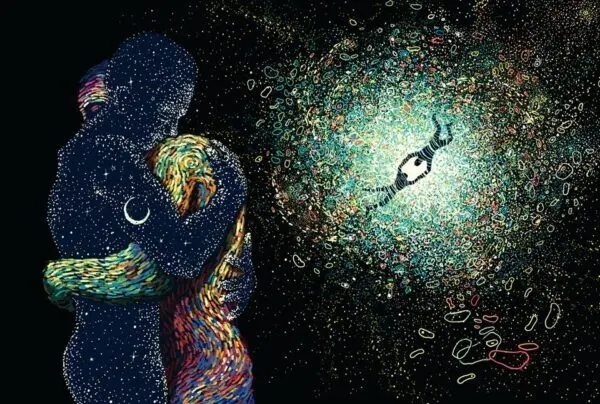

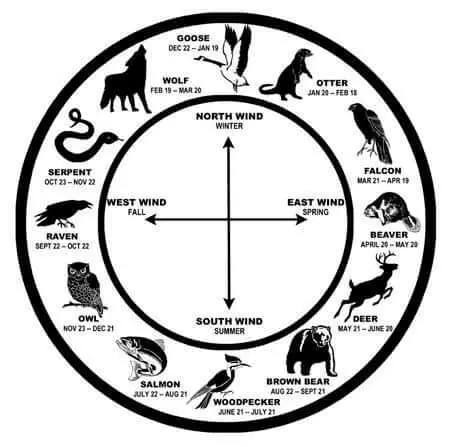
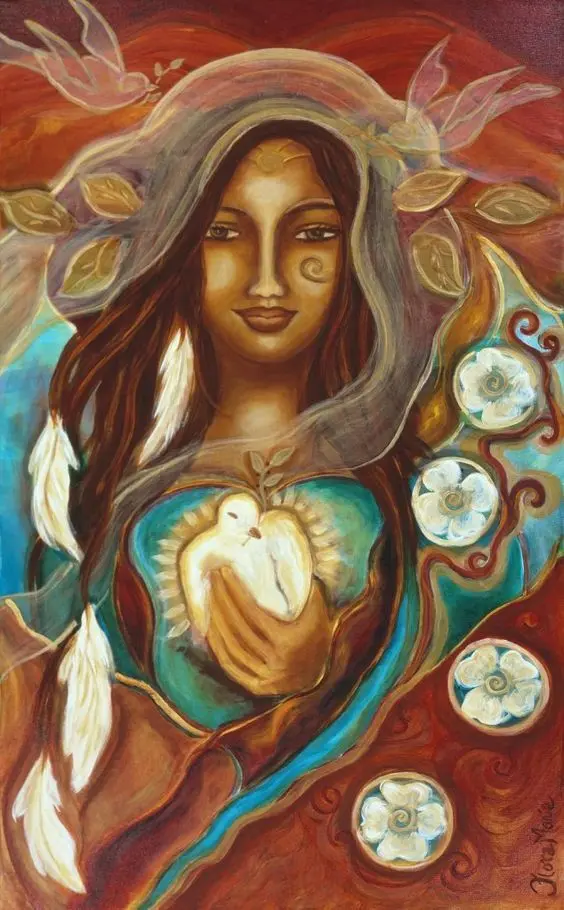
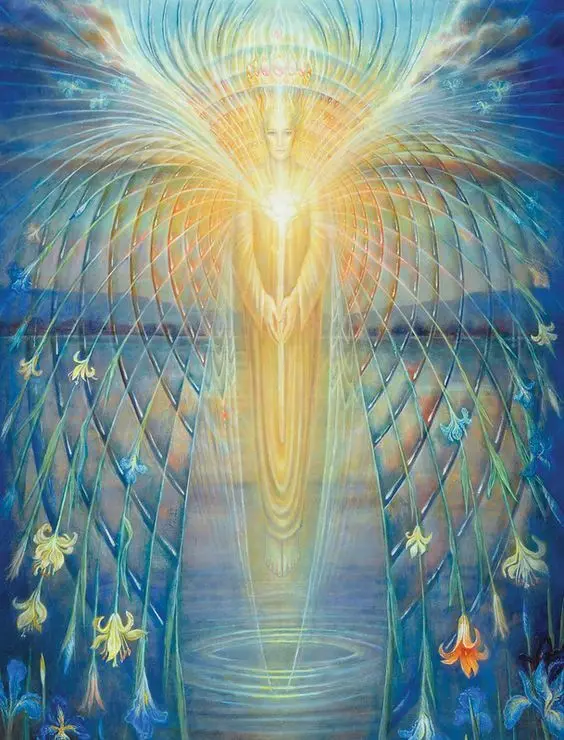
 Chiedi maggiori informazioni su come prenotare un consulto tarologico privato con Luce.
Chiedi maggiori informazioni su come prenotare un consulto tarologico privato con Luce.